Politicon.co
Armenia-Azerbaijan: what 2025 promises
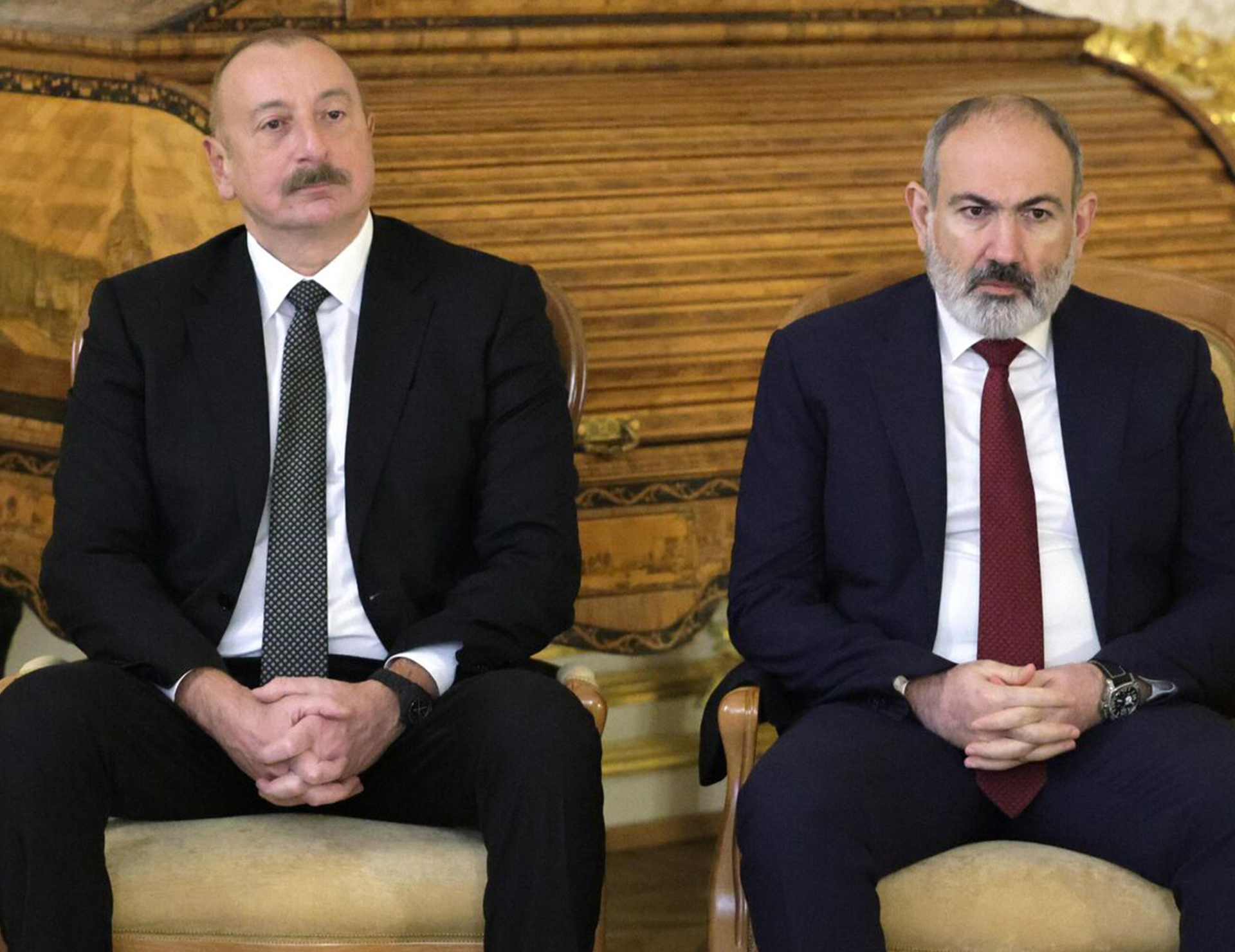
The beginning of 2025, as expected, has been marked by events and statements shaping the dynamics of relations between Armenia and Azerbaijan. In the first days of January, the latter announced that the Armenian Armed Forces had shelled Azerbaijani army positions along the border. A few days later, Azerbaijan’s President Ilham Aliyev gave an extensive interview to local media, presenting his position on resolving the long-standing conflict between the two nations.
Particular attention is drawn to the Azerbaijani leader’s statements about the Zangezur Corridor, which has become one of the key issues, if not the biggest one, in the Baku-Yerevan relations. Such a route was first announced in November 2020 when the leaders of Armenia, Azerbaijan, and Russia signed an agreement to end hostilities, known as the Second Karabakh War. In the more than four years since the cessation of fighting, the project designed to connect the mainland Azerbaijan with its exclave Nakhchivan has remained on paper. Azerbaijani authorities have periodically reminded Armenia that there is no alternative, but Armenian Prime Minister Pashinyan and other officials rejected the possibility of providing a corridor through their territory to a country they had fought twice in 30 years. In mid-2024, Azerbaijan suggested that the Zangezur Corridor route could pass through Iran, but the negative dynamics between Baku and Tehran, as well as rapidly changing geopolitics around Iran raise questions about the sustainability of such an initiative.
Azerbaijan`s rationale
Azerbaijani officials and experts are periodically asked why their country need the Zangezur Corridor at all. There can be several – following – reasons:
1) Restoring land connectivity
After the collapse of the Soviet Union, Azerbaijan lost overland connection to its Nakhchivan exclave. Since 1991, traveling from the mainland to Nakhchivan required crossing the soil of a third country, usually Iran, which has uneasy relations with Azerbaijan.
Moreover, with the growing economic ties between Azerbaijan and Turkey, such a corridor could open them a new chapter, a point frequently emphasized by officials in both Azerbaijan and Turkey. Turkish President Recep Tayyip Erdogan has made it clear to Armenia that he will support Baku’s efforts to open this route.
2) Exerting pressure on Armenia and controlling key transport routes
Since Armenia gained independence, it has virtually had no economic or diplomatic relations with due to Armenian invasion of Karabakh. The remaining neighbors—Georgia and Iran—were the only states in the region maintaining ties with Yerevan. It is no secret that part of Russia's military supplies reached Armenia through Iran. Leading up to and following the Second Karabakh War in 2020, Iran became a transit point for French and Indian arms deliveries. Should Azerbaijan achieve the opening of the Zangezur Corridor through diplomatic means, it could impose restrictions on arms transportation to Armenia. If Azerbaijan gains control militarily, arms deliveries to Armenia would become impossible.
Armenia’s response
Armenian Prime Minister Nikol Pashinyan responded to Aliyev’s interview two days later in an interview with Armenpress, presenting his perspective. However, unlike previous attempts to soften Aliyev’s rhetoric, this time Pashinyan firmly indicated Armenia would not concede on several issues—especially concerning the return of Azerbaijanis to Armenian territory and the Zangezur Corridor.
Regarding Aliyev’s claims of Armenia’s lack of alternatives in opening the extraterritorial corridor, Pashinyan stated that Yerevan only considers the Crossroads of Peace project, which does not involve granting Azerbaijan exclusive access to Nakhchivan. Pashinyan essentially admitted that the Zangezur Corridor project is impossible under Azerbaijan's terms.
The issue of returning ethnic Azerbaijanis once displaced from Armenia back to their homeland is also met with resistance from both Armenian leadership and society. The project appears unfeasible in the short term due to the lack of security mechanisms. However, Azerbaijan uses this issue to pressure Armenia’s leadership as it seeks maximum benefits from a possible peace.
For the first time in 200 years, there are no Armenians in Azerbaijan and no Azerbaijanis in Armenia. Both sides currently seem content with this status quo, though occasional statements about returning native residents to Zangezur and Karabakh arise. Neither governments, official structures, nor expert communities can presently offer solutions or terms for such returns.
2025: War or Peace?
Although the past several months was quite peaceful and were dedicated to the border demarcation and delimitation – leading to what as one of the Azerbaijani officials described “de facto peace without a peace treaty” – there are still problematic areas.
Armenia`s diversification of its weapon supply and intensive purchase of French- and Indian-made arms generate a lot of concern in Baku, which dubs it “Armenia`s rearmament”: this can lead to Azerbaijan`s reciprocal actions and eventually an arms race as due to distrust of both nations to each other.
Another point the authorities in Baku put an emphasis on is related to multiple actors deployed along Armenia`s border with Azerbaijan: Armenian border guard, local militias, EU`s monitoring mission (EUMA), and Russian border guard (until recently). There are call among the pro-Armenian lobbying organizations in the U.S. to deploy also American troops in the area: so many stakeholders on the Armenian side makes Baku nervous and can contribute to the regional tensions.
Changing global order and South Caucasus
As global events unfold, with Trudeau, Scholz, and Biden stepping down, and the potential political exits of Macron and von der Leyen, regional issues will attract less attention from the next generation of European politicians. The U.S. will focus on countering China in key regions, gradually reducing support for Ukraine and the European Union. Turkey will become a key partner in the region, forming a strategic alliance with the U.S.
Recent developments in Syria demonstrate that the Americans have placed its bet on Erdogan, who will take responsibility for the Middle East and South Caucasus. This makes a war between Iran and Israel almost inevitable, as Tehran finds itself isolated against its adversaries following the dismantling of its proxy forces. Armenia, whose security was partly ensured by Iran, now faces a lose-lose situation. Whether diplomatically or militarily, Armenia will be forced to make concessions, potentially leading to the weakening or even end of Pashinyan's rule. Azerbaijan remains determined to push for the Zangezur Corridor project, with more stakeholders supporting its opening than opposing it. Given the current precarious positions of Russia and Iran, the route could open soon.
![]()
- TOPICS :
- Conflict and peace
- REGIONS :
- Russia and CIS



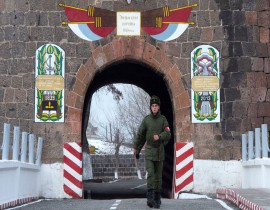
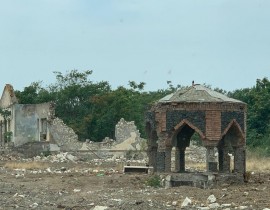
png-1748065971.png)
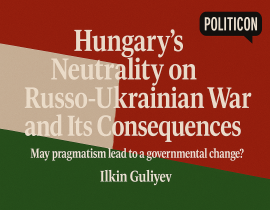
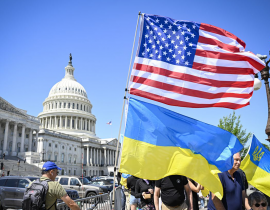

jpg-1599133320.jpg)

